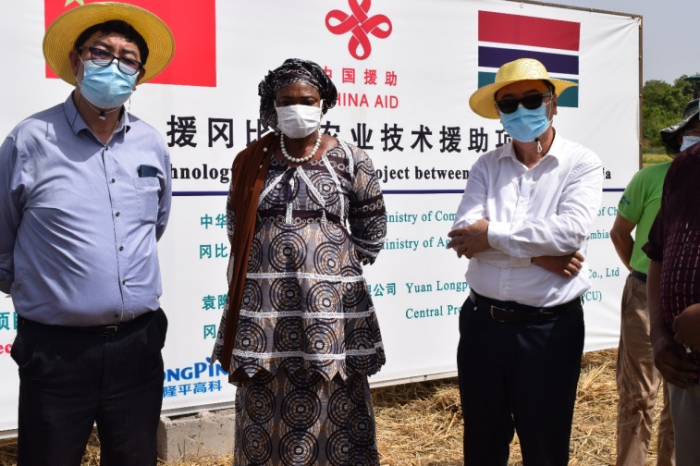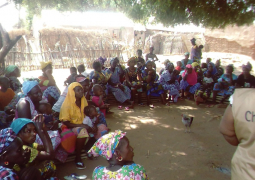
Minister Fabureh made this remark on Saturday while visiting the US$ 4.2 million China Government sponsored Agricultural Technology Cooperation Project in Sapu. She said the introduction of the hybrid rice would help the country in rice production. “Now we want to expand because without expansion, it would be difficult to achieve self-food sufficiency,” the minister said.
She observed that there is a need to expand the technology so that farmers all over the country benefit from it. According to the Hon. Minister, weeding is also a big hindrance to rice production in the Gambia but she pointed out that with the introduction of herbicides by the Chinese team that problem would be history.
“Gambia-China we are one family,” the agriculture minister said. On behalf of the Government of The Gambia, Minister Fabureh thanked China for all the support to the Gambia.
In his statement, the Republic of China ambassador to the Gambia, Ma Jianchun acknowledged the role of Agriculture in developing the Gambia. The ambassador said agriculture is not only connected to people’s livelihood but also to national security. He said like The Gambia, China encountered challenges in food self sufficiency 60 years ago. But he said China was able to come out of those challenges. The ambassador pointed out that China is ready and willing to help her ally like The Gambia with the appropriate agricultural technology to eradicate poverty.
Agriculture is one of President Adama Barrow’s government’s key priority areas in the National Development Plans (NDP). And the Ministry of Agriculture is not relenting to support this initiative. Against this backdrop the minister and her senior team embarked on a field visit to Sapu rice fields in Central River Region.





